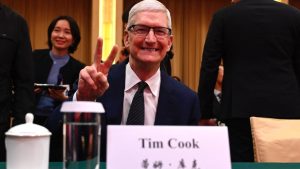Frank Harvey, the Chief Executive Officer for Surescripts, discusses the importance of interoperability in healthcare. He compares the concept to the divide between blue and green bubbles in text messaging and emphasizes the need for seamless communication between healthcare organizations to ensure patient safety and accuracy in healthcare information exchange. Harvey points out that while a lack of interoperability may be inconsequential in personal messaging, it can have dire consequences in healthcare, where missing or inaccurate information can lead to serious health risks.
Harvey explains how electronic prescriptions were a significant first step towards interoperability in healthcare. These prescriptions revolutionized how care providers and patients shared information, connecting prescribers and pharmacists through technology. He discusses the progress that has been made in the past decade, with billions of exchanges of patient information facilitated by interoperability solutions. The development of initiatives like TEFCA and QHIN have played a crucial role in enabling secure sharing of clinical information across different networks.
Despite the progress made, Harvey acknowledges that more work is needed to ensure safe communication and collaboration among healthcare professionals. With an increasing number of patients facing complex health challenges and a projected shortage of physicians, interoperability can play a key role in improving access to care and enhancing workflow efficiency for clinicians. Harvey stresses the importance of leveraging interoperability to support informed and cost-effective patient care, emphasizing the need for collaborative innovation in the healthcare industry.
Harvey highlights the significance of looking beyond individual organizations when developing interoperability solutions, emphasizing the need for tools that support safe, informed, and collaborative care for patients. He underscores the importance of focusing on patients and working towards a healthcare system where team colors fade into the background, allowing healthcare organizations to prioritize patient care and overall efficiency. Harvey emphasizes the role of interoperability in shaping the future of healthcare and enabling better integration of all members of evolving patient care teams.
In conclusion, Harvey emphasizes the crucial role of interoperability in healthcare and the need for continued innovation to support efficient and impactful exchange of patient information among healthcare professionals and organizations. He calls for a collaborative effort to ensure that interoperability solutions are designed to enhance patient care, streamline workflow, and improve access to healthcare services for all patients. Harvey highlights the importance of prioritizing patient needs and working towards a healthcare system where interoperability allows all healthcare organizations to effectively collaborate and deliver high-quality care to patients.















